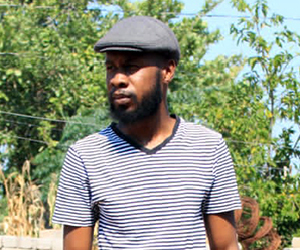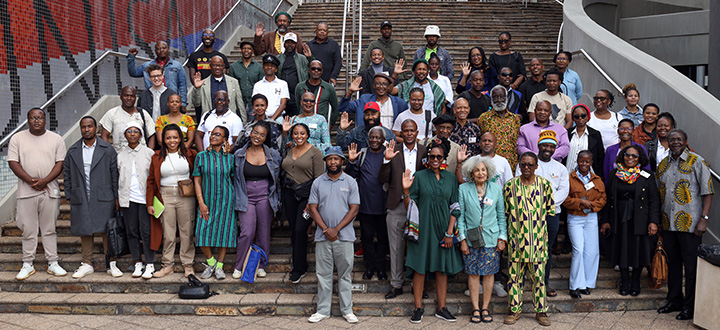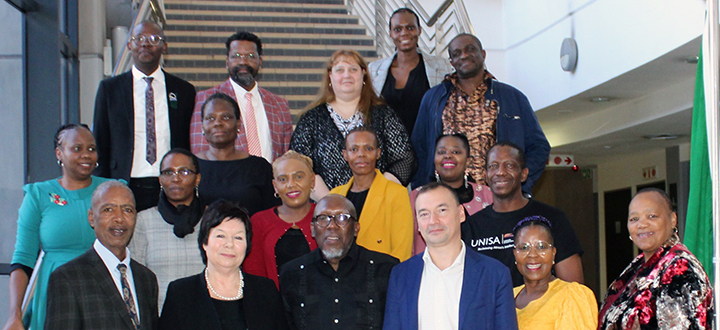News & Media
Examining the progress of South African youth
Centred on the youth, June is an important month in South Africa. It is a month where South Africans reflect on the historical events and realise the potential that young people have in tackling current and future injustices. The youth of 1976 have shown that irrespective of the many challenges that the country faced back then, young people are capable, strong and resilient, and have a powerful voice that brings meaningful change.
Unisa students reflect on whether South African youth have made any progress. They shared their thoughts on what they embrace the most as they look back at the events of 1976. Considering the current global pandemic that has hit the country hard, they also share their thoughts on how Covid-19 has affected the youth. Furthermore, they ponder whether the youth is contributing positively to social challenges such as gender-based violence, educational growth, unemployment and crime.
Prince Mokgalaka, LLB degree: College of Law

Prince Mokgalaka
The events of 1976 have made young people appreciate the value of education, since they were mostly fuelled by the desire for better education.
With the rising unemployment figure, more young people are beginning to discover more avenues for empowering themselves. They are shifting from the mentality of being entitled to being employed, or are starting their own businesses.
Maintaining social distance as one of the ways of curbing the spread of the pandemic has exposed how unnatural it is for human beings to live in isolation. It is not easy for schools, libraries and business enterprises to adapt to this new way of life.
The existence of social platforms is making it easier to raise awareness about social issues. More people are aware of these issues, which increases the chances of dealing with them.
Jarryd Kingsley Lyth, BSc in Life Sciences: College of Agriculture and Environmental Sciences

Jarryd Kingsley Lyth
I embrace the idea of an empowered youth that is willing to rise for causes of justice and make it known to politicians and the wider public that the system is no longer working for them.
Compared to the youth of 1976, the current youth have more governance structures, so they can be represented on various bodies. South African schools and higher education institutions have council structures for student representatives, who are elected by the students to represent them and raise their concerns for a specific term. The youth of today understand their rights and do not allow anyone to prevent them from exercising them.
The Covid-19 pandemic has enhanced our progress. It has opened a world of possibilities with technology, online learning and remote working. For a long time, the youth have been technologically savvy and have demanded more innovative solutions that embrace new technologies. These demands have fallen on deaf ears until now. The pandemic has empowered a technology-savvy youth for a future of online learning and remote working.
The youth are well-versed when it comes to human rights, and therefore are the strongest voices to address women and LGBTQI rights. Unfortunately, the high youth unemployment rate lends itself to higher rates of crime amongst this group. It is difficult to say if today’s youth can solve social challenges such as unemployment and crime.
Ntsako Mbombi, BA in Politics, Philosophy and Economics: College of Human Sciences

Ntsako Mbombi
What I embrace and acknowledge is that the youth of 1976 played a significant role in the ongoing fight to fully liberate African epistemologies from being marginalised by imperial forces. Much still needs to be done regarding liberating the inner man of Africa, however, the youth of 1976 has laid a foundation that we can build on as the youth of today.
The quality of education and channels of political participation have improved, but economic stagnation expressed by rising youth unemployment threatens the wellbeing of the future generations and political stability going forward.
The Covid-19 pandemic has exacerbated the challenges of youth unemployment, as young people are usually the first to be let go due to less work experience and less family responsibilities. An increase in unemployment, in general, may reduce the taxes collected by the government. And thus, the smaller budget to fund youth development programmes such as education will slow down the development and progress of the youth.
With the limited resources we have, one of the ways that the youth can continue to contribute to solving our social challenges is to advocate and raise our voices directly to authorities to do something about them. We see today’s youth picketing and marching on the streets and running social justice campaigns. I have also seen young entrepreneurs start businesses and creating jobs for other young people.
* By Simphiwe Mthimunye, Unisa Student
Publish date: 2021-07-07 00:00:00.0

 Unisa's student leadership engage with Russian ambassador
Unisa's student leadership engage with Russian ambassador
 Re-igniting and re-imagining Pan Africanism, Afrocentricity and Afrofuturism in the 21st century
Re-igniting and re-imagining Pan Africanism, Afrocentricity and Afrofuturism in the 21st century
 Unisa and Russian State University for the Humanities explore collaborative opportunities
Unisa and Russian State University for the Humanities explore collaborative opportunities
 Young Unisa science stars join elite Lindau Nobel Laureate group
Young Unisa science stars join elite Lindau Nobel Laureate group
 Education MEC addresses Unisa autism seminar
Education MEC addresses Unisa autism seminar